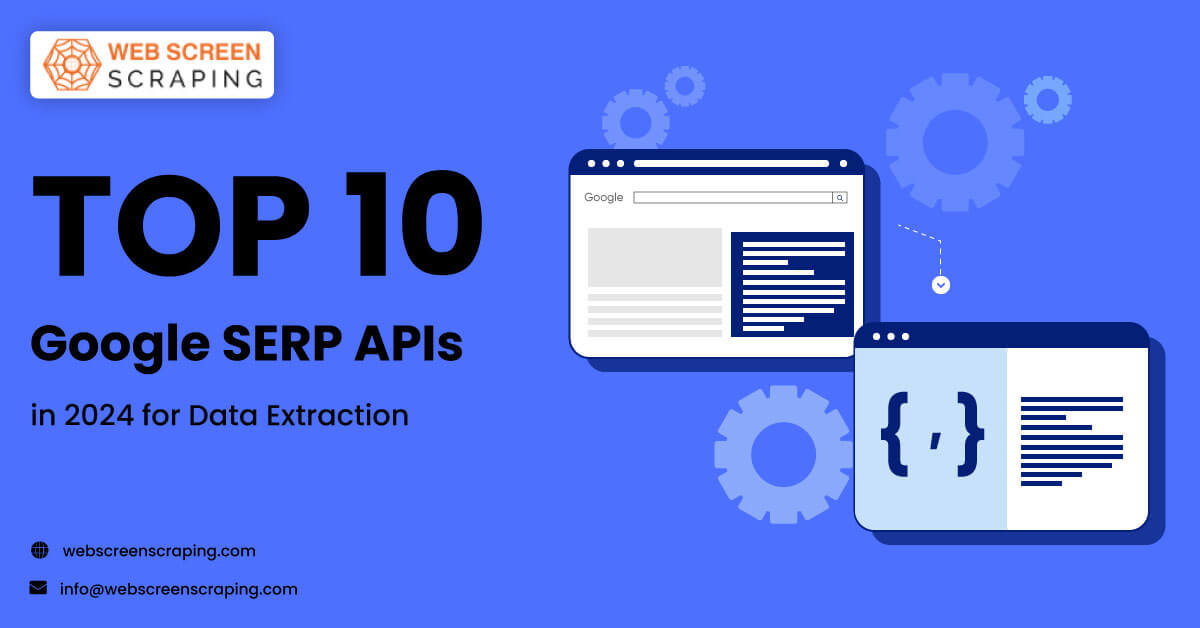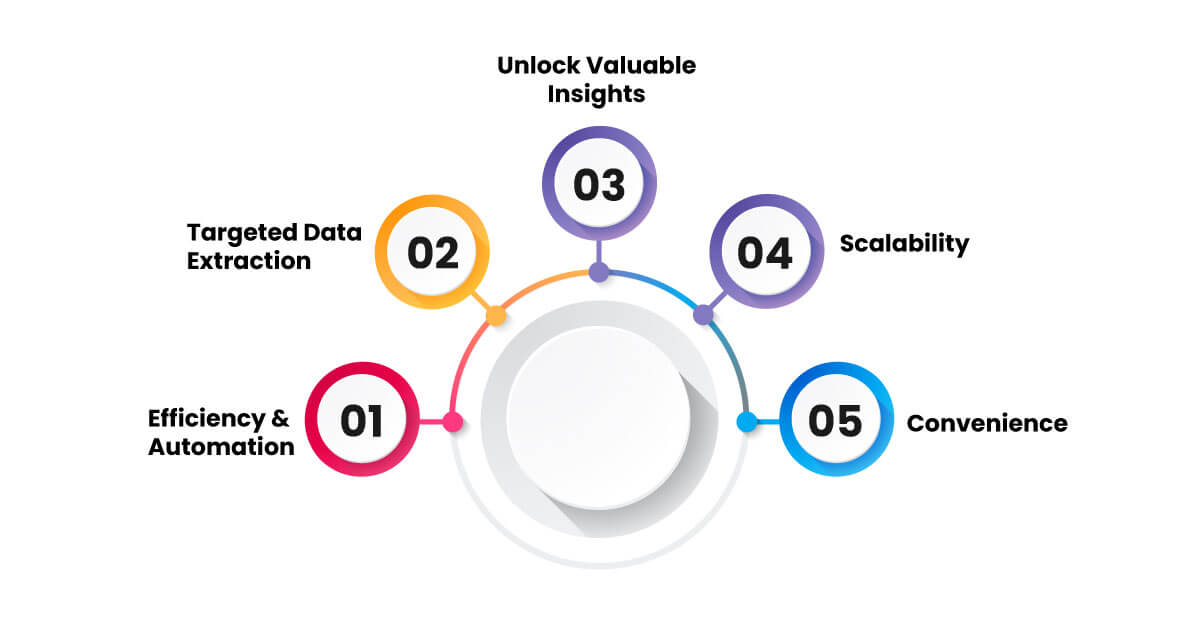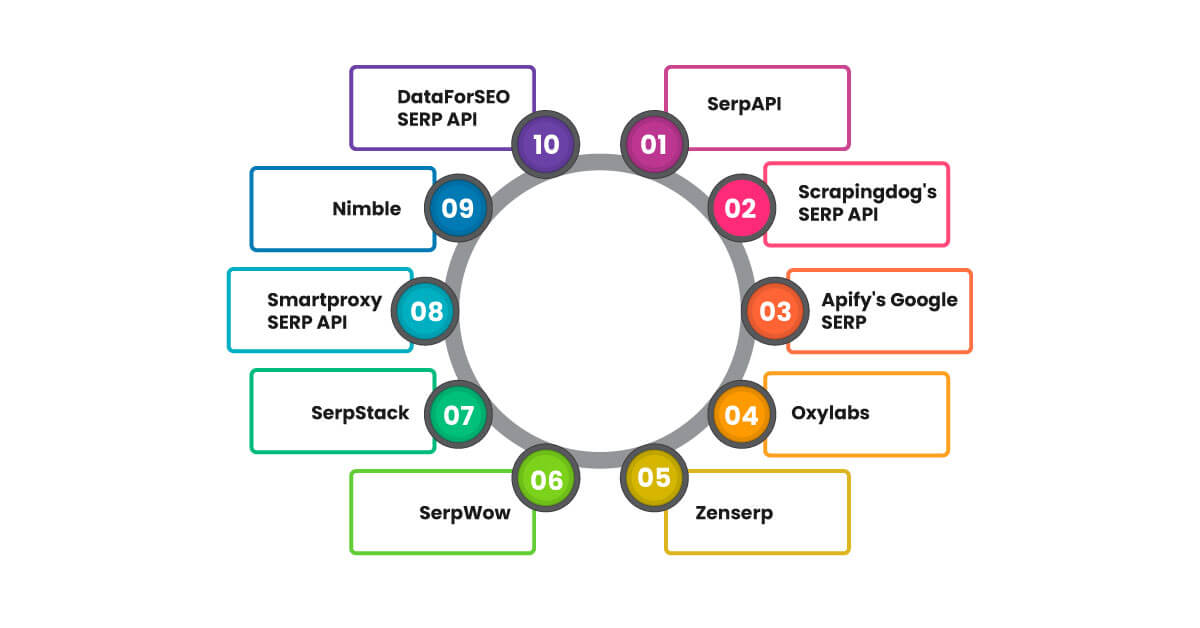
As we enter 2024, the importance of extracting accurate data from Google's Search Engine Results Pages (SERPs) for SEO strategies and market analysis is at its peak. Envision a scenario where you can effortlessly retrieve the precise data you require from Google searches. This is the era of Google SERP APIs! Our guide delves into the top 10 SERP scraping APIs in 2024, equipping you with the tools to unearth valuable insights, streamline tasks, and elevate your research prowess.
What is SERP?
SERP stands for Search Engine Results Page. It's the page you see on Google (or any other search engine) after you enter a search query. This page displays a list of websites and other relevant information related to your search. SERPs typically include:
- Organic results: Websites that appear based on Google's algorithm's ranking of their relevance to your search query.
- Paid Ads: Sponsored results from advertisers who pay to display their websites prominently on the SERP.
- Additional SERP features: Depending on your search query, Google might also display other informative elements like knowledge panels, image carousels, or video results.
Knowing how search engine results pages (SERPs) work is important for anyone who uses search engines often. If you understand the different parts and how Google decides the order of results, you can search more smartly and find what you're looking for faster.
What is SERP API, and Why is it Important?

A SERP API is a tool that connects your app or software to the huge amount of information that search engines like Google have. It lets you automatically gather important data from search results.
Here's why SERP APIs are important:
- Efficiency and Automation: SERP APIs automate this process, allowing you to extract large amounts of data quickly and efficiently.
- Targeted Data Extraction: You can set up SERP APIs to examine only certain parts of the search results, such as the regular search listings, information on ads, or local business findings.
- Unlock Valuable Insights: Companies can use it to see how well their keywords are doing, understand what their competitors are doing, or spot trends in the market.
- Scalability: SERP APIs can handle big data collection jobs, making them great for businesses and organizations that need to gather and study a lot of search information.
- Convenience: Many APIs offer user-friendly interfaces and functionalities, making them accessible even for those without extensive programming knowledge.
10 Best Google SERP APIs in 2024

In 2024, Google SERP scraping continues to evolve, and APIs offer a powerful and convenient way to extract valuable data from search results. Here's a breakdown of the top 10 SERP APIs to consider:
SerpAPI
SerpAPI is designed with ease of use in mind. No complex coding is required. You can make API requests with simple parameters and receive clean JSON responses, making it easy to integrate and analyze the information with your applications. SerpAPI allows you to target specific aspects of the SERP, such as organic search results, local search, news and shopping results, etc.
SerpAPI provides comprehensive documentation with clear instructions and code examples to guide you through the API calls and functionalities. SerpAPI supports various popular programming languages like Python, PHP, JavaScript, and more. SerpAPI caters to both beginners and experienced users.
Scrapingdog's SERP API
Scrapingdog delivers both the raw HTML of the search result page and parsed data in a structured format (like JSON). This allows you to choose the level of detail you need. Scrapingdog boasts extensive documentation and tutorials to get you started quickly, even if you're new to using APIs. The API supports various programming languages like Java, Python, PHP, and .NET, making integrating with your existing projects easy.
Their scraping techniques are designed to deliver reliable results. They use a large pool of constantly rotating proxies to avoid detection. Scrapingdog handles CAPTCHAs and JavaScript-heavy pages to ensure smooth data extraction. It claims a high success rate for extracting data from Google searches.
Apify's Google SERP
Apify's Google SERP Scraper stands out as a versatile tool for extracting data from Google search results. It extracts data from organic and paid search results on Google and targets specific information like titles, URLs, and snippets. Depending on the structure of the search result, it can potentially scrape additional data points. It allows various search options like scrape by URL, scrape by Keyword (up to a limit), number of results per page, and specifying language and location parameters for further customization.
The interface is designed to be user-friendly, even for beginners with no coding experience. Apify allows you to connect the scraper with various cloud services and web apps for further data processing or automation.
Oxylabs
It can extract data from Google, Bing, Yandex, and Baidu. Depending on the search engine, it can extract various data points, including organic search results, paid ads (with a high scraping rate), local results, news, images, and more. To get localized search results, it can target specific locations with coordinate-level precision.
Unique headers, fingerprints, and JavaScript handling ensure the API adapts to dynamic content on search engine pages. Handles CAPTCHAs and retries failed requests automatically for uninterrupted data collection. Oxylabs offers a 1-week free trial to test the SERP Scraper API. You only pay for successfully retrieved results, reducing costs for unsuccessful requests.
Zenserp
Zenserp goes beyond standard searches. You can access data from image searches, news searches, maps searches, and more. Zenserp offers a Google Trends API that retrieves trending topics in a user-friendly JSON format, YouTube Search API and Google Shopping Product Page API. Extract geolocated search results, showing how search rankings differ based on location.
Zenserp offers a free plan to get you started, though it limits the number of searches you can perform. The API supports various programming languages, making it easy to integrate into your applications.
SerpWow
SerpWow runs queries on various search engines, including Google, Bing, Yahoo, Baidu, Yandex, Naver, Amazon, and eBay. You can choose between JSON or CSV. SerpWow parses search engine pages to extract various data points beyond just URLs, including titles, descriptions, links, and more.
Designed for high-volume applications, SerpWow can handle tens of thousands of search requests efficiently. Comprehensive documentation and code samples are provided to simplify integrating the API into your development workflow.
SerpStack
SerpStack extracts information from Google search results, including organic listings, ads, news results, images, and more. It retrieves data in real time, reflecting the current search engine landscape. It is designed to handle large volumes of requests, allowing you to scrape data for multiple searches efficiently.
You can tailor your searches with options like location, language, device type (desktop/mobile), and more. Simple HTTP GET requests for retrieving data and integrates well with various programming languages. It offers a free plan with up to 100 monthly requests, suitable for testing or low-volume needs.
Smartproxy SERP API
Smartproxy scrapes data from popular search engines, such as Google (the most in-depth), Baidu, Bing, and Yandex. It retrieves real-time data, allowing you to see current search rankings and shifts and, parses search results and delivers data in a structured format like JSON or raw HTML for easy analysis.
Automate SERP monitoring to track and gain valuable insights into search trends, competitor analysis, and SEO performance. Smartproxy's extensive proxy network helps avoid getting blocked by search engines.
Nimble
Nimble boasts a powerful weapon - Nimble Browser. This browser leverages AI-powered fingerprinting to bypass anti-bot measures employed by search engines, ensuring reliable data collection. Nimble's API scales seamlessly to handle any workload, from a few requests to millions.
Nimble offers various pricing plans with a pay-per-success model, ensuring you only pay for successful requests. While the API caters to developers, information on their documentation suggests it might be reasonably accessible for those without extensive coding experience.
DataForSEO SERP API
DataForSEO boasts the most comprehensive Google SERP data available in the market, including organic search results, snippets, map packs, knowledge graphs and more. One of its strengths is granular geo-targeting. You can get search results for specific regions, districts, or even GPS coordinates, ensuring the data reflects local search intent.
In addition to Google, DataForSEO provides a separate API for retrieving SERP data from the Bing search engine. It recently added a "target" parameter allowing you to focus on specific domains within the results.
How to choose the right SERP API?
Selecting the right SERP (Search Engine Results Page) API depends on your specific needs and priorities. Here are a key factors to consider:
- Which search engines do you need data from? Most APIs focus on Google, but some offer Bing or other options.
- What data points are crucial for you? Basic APIs might provide ranking positions and URLs, while advanced ones include features like ad copy, estimated traffic, and SERP snippets.
- Look for providers with a strong track record of accuracy and techniques to overcome challenges like CAPTCHAs.
- Are you a developer comfortable with coding, or do you prefer a no-code solution? Some APIs offer pre-built integrations or visual interfaces.
- Good documentation and responsive customer support are valuable assets, especially for troubleshooting or complex use cases.
- Compare pricing structures. Some offer free tiers or trials, while others have pay-as-you-go or fixed monthly plans. Consider your expected data usage volume.
- If your needs might grow in the future, choose an API that can handle increased data requests without compromising performance.
Conclusion
With multiple options in the market, you're sure to find the perfect data-unlocking tool for your SEO or market research needs. Remember, these are just a few options. The world of web data is vast, and third-party service providers like Web Screen Scraping can be your secret weapon. We can unlock hidden insights and automate tasks, helping businesses of all sizes have a chance to dominate the search landscape.

